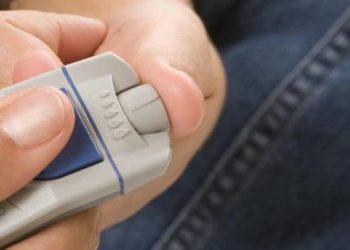Telehealth treatment is effective in managing behavior problems in children with developmental delay
1. In a randomized clinical trial, internet-delivered parent-child interaction therapy (iPCIT) was associated with improvements in externalizing behaviors, positive parenting skills, and decreased use of harsh and inconsistent discipline.
2. iPCIT therapy has high rates of parental satisfaction post-intervention.
Evidence Rating Level: 1 (Excellent)
Study Rundown: Behavioral and externalizing concerns are common in children with developmental delay (DD) and are associated with caregiver stress and functional impairments. Interventions such as parent-child interaction therapy (PCIT) have been shown to be effective in managing behavioral concerns, although this modality has accessibility limitations and relies on in-session coaching. This study is the first randomized controlled trial to evaluate the efficacy of telehealth internet-delivered PCIT (iPCIT) for behavioral intervention in children with DD, following early intervention (EI) programs ending at the age of 3 years old. When compared to standard of care, the iPCIT group had a lower number of children with externalizing problems and more significant time-dependent decreases in externalizing behaviors. In addition, iPCIT was associated with positive parenting skills, decreases in observed controlling or critical behaviors, and more significant time-dependent decreases in the use of harsh and inconsistent discipline. Parents also had high satisfaction with iPCIT. One limitation of the study is the exclusion of patients receiving psychiatric medications for behavioral problems, which limits the generalizability of findings to this important patient population. Overall, this study provides compelling evidence that iPCIT is a useful treatment modality to manage behaviors and externalization in youth with DD, and could be utilized to improve the accessibility of services for families.
Click here to read the article in JAMA Pediatrics
Relevant Reading: Parent training for young children with developmental disabilities: a randomized controlled trial
In-Depth [randomized controlled trial]: Children with the diagnosis of developmental delay (DD) with externalizing problems were included in this study. After ending early intervention (EI) services at age 3 years, patients were randomly assigned to 2 arms of the RCT: (1) internet-delivered parent-child interaction therapy (iPCIT) or (2) routine care (referrals as usual) for 20 weeks. Follow-ups occurred at 6 and 12 months. Behaviors were assessed with the Child Behavior Checklist (CBCL) and the Dyadic Parent-Child Interaction Coding System (DPICS). Secondary behavior outcomes were assessed by Parenting Practices Inventory (PPI) for caregiver-reported discipline and Family Impact Questionnaire (FIQ) for caregiver stress. Caregiver satisfaction post-intervention was measured by Therapy Attitude Inventory (TAI) and Client Satisfaction Questionnaire 8 (CSQ-8). After recruitment, 75 children were randomized to each group. There was high satisfaction with iPCIT treatment as measured by TAI (mean = 44.45 of 50) and CSQ-8 scores (mean = 28.74 of 32). Children in the iPCIT group had more children with clinically improved externalizing problems compared to the control group at post-intervention (p<0.001) and 6 months of follow-up (p=0.002) but not at 12 months of follow-up. Caregiver reports of child externalizing problems decreased in both groups, but more rapidly with time in the iPCIT group at all time points (Cohen d = 0.48 at post-intervention, 0.49 at 6 months, 0.50 at 12 months). The iPCIT group had an increased proportion of positive parenting skills at all time points (post-intervention OR 1.10, 6-month OR 1.31, 12-month OR 1.64), and decreased observed controlling or critical behaviors (post-intervention OR 1.40, 6 month OR 1.72, 12-month OR 2.23). Use of harsh and inconsistent discipline decreased in both groups over time but decreased more rapidly in iPCIT families at all time points (Cohen d = 0.24 at post-intervention, 0.26 at 6 months, 0.27 at 12 months).
Image: PD
©2023 2 Minute Medicine, Inc. All rights reserved. No works may be reproduced without expressed written consent from 2 Minute Medicine, Inc. Inquire about licensing here. No article should be construed as medical advice and is not intended as such by the authors or by 2 Minute Medicine, Inc.


![2 Minute Medicine: Pharma Roundup: Price Hikes, Breakthrough Approvals, Legal Showdowns, Biotech Expansion, and Europe’s Pricing Debate [May 12nd, 2025]](https://www.2minutemedicine.com/wp-content/uploads/2025/05/ChatGPT-Image-May-12-2025-at-10_22_23-AM-350x250.png)






